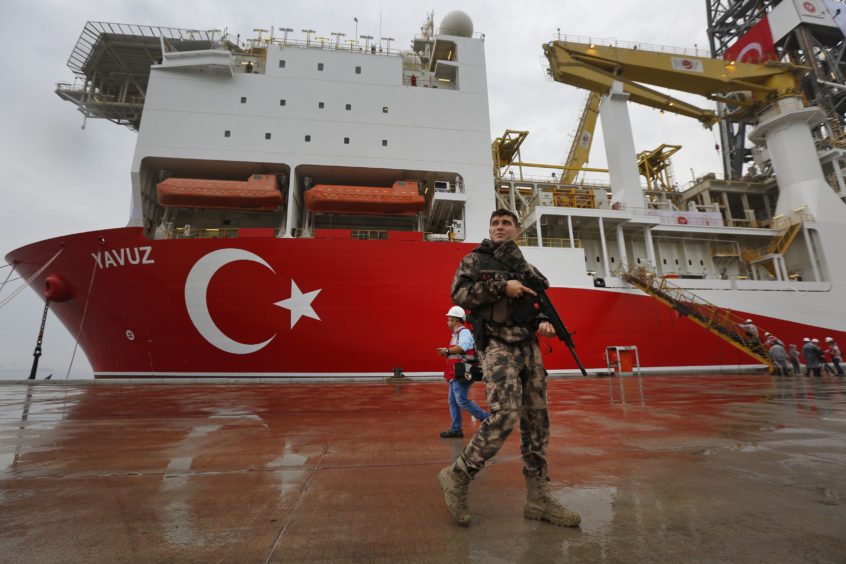
German Foreign Minister Heiko Maas urged Greece and Turkey to restart talks over their competing claims to economic sovereignty in contested waters of the eastern Mediterranean as he visits the NATO allies on Tuesday.
“The current situation in the eastern Mediterranean is playing with fire, with any small spark potentially leading to catastrophe,” Maas said in Athens alongside his Greek counterpart Nikolaos Dendias. “What we need immediately are signals of de-escalation and a readiness for dialog.”
The disputed region has become an energy hot spot with big natural gas finds for European Union member Cyprus, Israel and Egypt in recent years, and Turkey’s push to secure a share of the resources has exacerbated strains between historic rivals. The offshore gas reserves have attracted companies from around the world, including ExxonMobil Corp.
German-mediated negotiations collapsed earlier this month after the Athens government announced a maritime delimitation agreement with Egypt on Aug. 6, similar to a Turkey-Libya deal in December.“Greece has shown that it’s ready for dialog, but not amid challenges and as its sovereign rights are being violated,” Dendias said, adding that he expects a possible list of sanctions against Turkey to be presented at an EU meeting later this week.
Greece on Monday began joint military exercises with the U.S. in an area that partially overlapped with the expected location of a Turkish survey ship, which Ankara had announced would explore that area until Aug. 27, three days longer than had been originally planned.
Turkey Confronts EU With New Energy Survey Off Cyprus Coast
Maas faces an uphill struggle. Late on Monday, Turkish President Recep Tayyip Erdogan again cast Greece as the villain. “From now on, Greece will be the cause of every negativity in the region, and Greece will suffer the biggest harm,” he said. “Turkey will not take a step back.”
Greek government spokesman Stelios Petsas said Athens would respond “calmly and readily on both the diplomatic and business levels. And with national confidence, it does whatever it takes to defend its sovereign rights.”
Maas, who is scheduled to travel to Ankara later Tuesday and meet Turkish Foreign Minister Mevlut Cavusoglu, said tensions in the Mediterranean not only threaten the relationship between the EU and Turkey but the entire region.
EU foreign ministers will meet in Berlin this week to discuss “our relationship with Turkey, and Greece’s voice will have special weight,” Maas said.
Greece says that islands must be taken into account in delineating a country’s continental shelf, in line with the United Nations Law of the Sea, which Turkey has not signed. Ankara argues it should be measured from the mainland, and that the area south of the Greek island of Kastellorizo — just a few kilometers off Turkey’s southern coast — therefore falls within its exclusive zone.
Turkey is also at loggerheads with Cyprus over offshore gas reserves around the island, where the Republic of Cyprus is an EU member state and officially has sovereignty over the entire island.
But the island has been effectively divided into two since Turkey’s military captured the northern third in 1974, following a coup attempt in which a military junta in Athens sought to unite Cyprus with Greece. The Turkish minority’s self-proclaimed state in the north, recognized only by Ankara, also claims rights to any energy resources discovered off its coast.